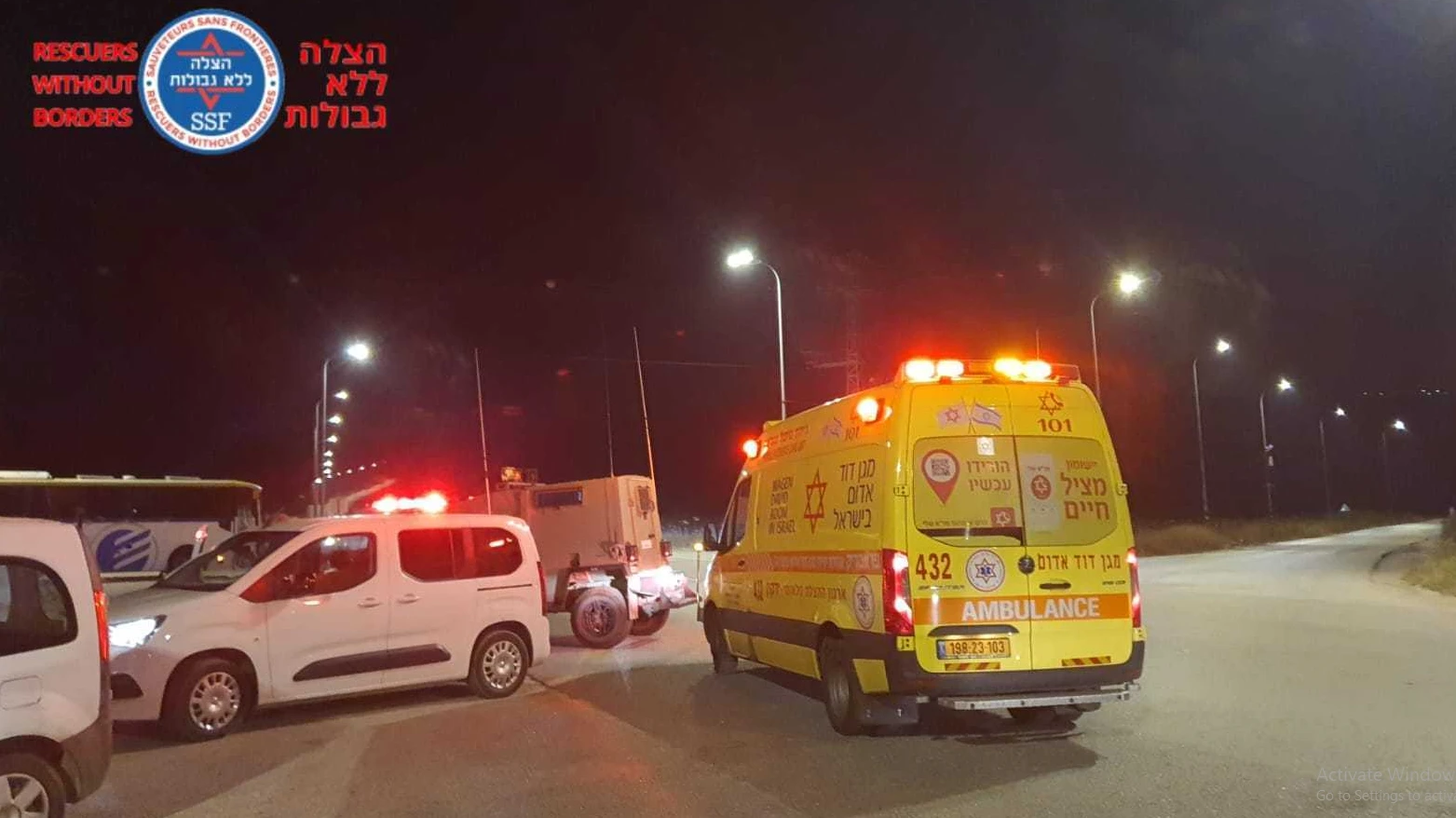Car ramming attack kills two Israeli soldiers in West Bank

Stay tuned with 24 News HD Android App

A car ramming attack killed two Israeli soldiers near the city of Nablus in the occupied West Bank, the Israeli army said early Thursday.
The army had earlier reported a car ramming attack on Wednesday near an Israeli settlement outside Nablus, without specifying who the victims were.
It later identified them as soldiers Eliya Hilel and Diego Shvisha Harsaj, both 20 and members of the Kfir brigade.
According to Israeli media, the army has launched a manhunt for the perpetrator of the attack, which came as violence in the West Bank flares against the backdrop of Israel's war against Hamas militants in Gaza.
The deadliest-ever Gaza war was sparked by Hamas's unprecedented October 7 attack on southern Israel, which resulted in the deaths of 1,189 people, mostly civilians, according to an AFP tally based on Israeli official figures.
Militants also took 252 hostages, 121 of whom remain in Gaza, including 37 the Israeli army says are dead.
Israel's retaliatory offensive has killed at least 36,171 people in Gaza, mostly civilians, according to the Hamas-run territory's health ministry.
Since the outbreak of the fighting, violence has surged in the West Bank.
According to Palestinian officials, at least 519 Palestinians have been killed in the West Bank by Israeli troops or settlers since October 7.
Not counting Wednesday's victims, attacks by Palestinians have killed at least 12 Israelis in the West Bank over the same period, according to an AFP tally of Israeli official figures.
Hamas welcomed the attack near Nablus, saying in a statement it was a "natural response" against the "crimes of the enemy".
Israel seizes key Gaza-Egypt corridor
Israel's army said Wednesday it took control of a vital Gaza-Egypt corridor it suspects aided weapons smuggling as the ground offensive against Hamas in the border city of Rafah intensified.
A military spokesman said about 20 tunnels were found in the area of the corridor, a claim rejected by Egypt which accused Israel of using allegations of tunnels under the border as cover for its Rafah offensive.
The UN Security Council was set to meet for a second day of emergency talks after a strike at the weekend ignited a fire that Gaza officials said killed 45 people and injured about 250.
United Nations Secretary-General Antonio Guterres was among the many leaders to voice revulsion at the bloodshed, demanding that "this horror must stop".
Israel's National Security Adviser Tzachi Hanegbi said, however, that the war could go on until the year's end.
"We may have another seven months of fighting to consolidate our success and achieve what we have defined as the destruction of Hamas's power and military capabilities," Hanegbi said.
Army spokesman Daniel Hagari later said Israeli forces had taken "operational control" of the strategic, 14-kilometre (8.5-mile) Philadelphi corridor along the Gaza-Egypt border and "discovered around 20 tunnels".
The corridor, which had served as a buffer between Gaza and Egypt, was feared to be a weapons channel for armed groups in the territory since Israel's 2005 withdrawal from Gaza.
Its seizure comes weeks after Israeli forces took over the Palestinian side of the Rafah border crossing.
"Israel is using these allegations to justify continuing the operation on the Palestinian city of Rafah and prolonging the war for political purposes," a high-level Egyptian source said, quoted by state-linked Al-Qahera News.
Egypt says it has destroyed hundreds of cross-border tunnels with Gaza since 2013.
- US 'red lines' -
In besieged Rafah, witnesses reported escalated fighting with helicopters intensifying attacks, supported by artillery.
Hamas's military wing said it was targeting Israeli troops with rockets.
AFPTV footage showed Palestinians with bloodied midriffs and bandaged limbs after being wounded in strikes near Khan Yunis, close to Rafah, being taken to the European Hospital on makeshift gurneys.
"The rockets fell directly on us. I was hurled three metres (yards)... I don't know how I managed to get up on my feet," said one who did not give his name.
Gaza's civil defence said three bodies were recovered from a Khan Yunis house after it was shelled.
The United States has been among the countries urging Israel to refrain from a full-scale Rafah offensive because of the risk to civilians.
However, the White House said Tuesday that so far it had not seen Israel cross President Joe Biden's "red lines".
On Wednesday, US Secretary of State Antony Blinken called on Israel to quickly devise a post-war strategy for Gaza, stressing: "In the absence of a plan for the day after, there won't be a day after."
A steady stream of civilians has been fleeing Rafah, the new hotspot in the gruelling war, many transporting belongings on their shoulders, in cars or on donkey-drawn carts.
Before the Rafah offensive began on May 7, the United Nations said up to 1.4 million people were sheltering there. Since then, one million have fled the area, the UN agency for Palestinian refugees (UNRWA) has said.
Israeli Prime Minister Benjamin Netanyahu called Sunday's strike and ensuing fire a "tragic accident".
The army said it had targeted a Hamas compound and killed two senior members of the group and that it was investigating the strike.
